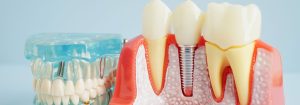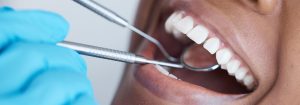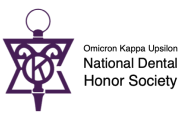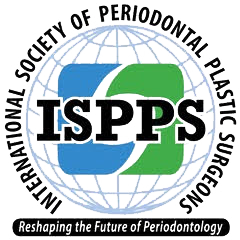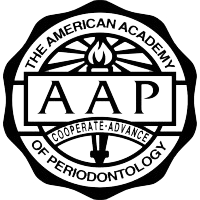Caring for Dental Implants in Seattle, WA
Tips to Help You Maintain Dental Implants
Dental implants are a reliable and natural-looking solution for replacing missing teeth. To maintain their longevity and functionality, proper care is essential. At Maring Surgical Oral Surgery and Dental Implant Center in downtown Seattle, WA, we’re committed to providing patients with the knowledge they need to care for their dental implants effectively.
By following the guidelines in this comprehensive care guide, you can protect your investment from implant failure and other complications. Let us help you maintain a healthy, confident smile for years to come. If you have any questions about dental implant care or are ready to schedule an appointment, call our Seattle oral surgeon today at 206-343-7500.
Special Services at Maring Surgical Oral Surgery and Dental Implant Center
Collaborative Care Under One Roof
One of the distinguishing features of our Seattle practice is the collaborative approach between our oral surgeon and periodontist. This unique setup allows us to offer comprehensive implant care from start to finish, all in one convenient location.
Advanced Techniques and Technology
Our team employs the latest advancements in dental technology to deliver precise and effective care. From 3D imaging for accurate implant placement to minimally invasive procedures, we’re committed to achieving exceptional results.
Instructions for Right After Dental Implant Surgery

Do not disturb the wound. Avoid rinsing, spitting, or touching the wound on the day of surgery. There will be a metal healing abutment protruding through the gingival (gum) tissue.
Bleeding
Some bleeding or redness in the saliva is normal for 24 hours. Excessive bleeding (your mouth fills up rapidly with blood) can be controlled by biting on a gauze pad placed directly on the bleeding wound for 30 minutes. If bleeding continues please call for further instructions.
Swelling
Swelling is a normal occurrence after surgery. To minimize swelling, apply ice (wrapped in a towel or bag) on the cheek in the area of surgery. Apply the ice continuously, as much as possible, for the first 36 hours.
Diet
Drink plenty of fluids. Avoid hot liquids or food. Soft food and liquids should be eaten on the day of surgery. Return to a normal diet as soon as possible unless otherwise directed.
Pain
 You should begin taking pain medication as soon as you feel the local anesthetic wearing off. For moderate pain, one or two Tylenol or Extra Strength Tylenol may be taken every three to four hours. Ibuprofen (Advil or Motrin) may be taken instead of Tylenol. Ibuprofen, bought over the counter comes in 200 mg tablets: two to three tablets may be taken every three to four hours as needed for pain.
You should begin taking pain medication as soon as you feel the local anesthetic wearing off. For moderate pain, one or two Tylenol or Extra Strength Tylenol may be taken every three to four hours. Ibuprofen (Advil or Motrin) may be taken instead of Tylenol. Ibuprofen, bought over the counter comes in 200 mg tablets: two to three tablets may be taken every three to four hours as needed for pain.
For severe pain, the prescribed medication should be taken as directed. Do not take any of the above medication if you are allergic, or have been instructed by your doctor not to take it.
Antibiotics
Be sure to take any prescribed antibiotics as directed to help prevent infection.
Activity
Keep physical activities to a minimum immediately following surgery. If you are considering exercise, throbbing or bleeding may occur. If this occurs, you should discontinue exercising. Keep in mind that you are probably not taking normal nourishment. This may weaken you and further limit your ability to exercise.
Wearing your Prosthesis
Partial dentures, flippers, or full dentures should not be used immediately after surgery and for at least 10 days. This was discussed in the pre-operative consultation.
Oral Hygiene
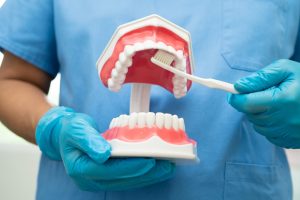 Good oral hygiene is essential to good healing. On the night of the implant surgery, use the prescribed Peridex Oral Rinse before bed. The day after surgery, the Peridex should be used twice daily, after breakfast and before bed. Be sure to rinse for at least 30 seconds then spit it out.
Good oral hygiene is essential to good healing. On the night of the implant surgery, use the prescribed Peridex Oral Rinse before bed. The day after surgery, the Peridex should be used twice daily, after breakfast and before bed. Be sure to rinse for at least 30 seconds then spit it out.
Warm salt water rinses (teaspoon of salt in a cup of warm water) should be used at least four to five times a day, as well, especially after meals. Brushing your teeth and the healing abutments is no problem. Be gentle initially with brushing the surgical areas.
Daily Care for Your Dental Implants
Brushing Techniques
Brushing your teeth is a cornerstone of oral hygiene and is especially important for dental implants. Use a soft-bristled toothbrush and low-abrasive toothpaste to clean all surfaces of your teeth and implants. Brush gently to avoid irritating the surrounding gum tissue while ensuring a thorough cleaning. Aim to brush at least twice daily for optimal results.
Flossing Around Implants
Flossing helps remove plaque and food particles from hard-to-reach areas around your implants. Use a floss threader or interdental brush specifically designed for dental implants. These tools can navigate tight spaces, reducing the risk of plaque buildup and gum disease.
Antibacterial Rinses
Incorporating an antibacterial mouthwash into your routine can help reduce bacteria that contribute to gum inflammation. Rinse daily with a mouthwash formulated for implant care to support the health of your gums and implant posts.
Professional Maintenance
Routine Dental Visits
Regular checkups are critical for monitoring the health of your dental implants. At Maring Surgical Oral Surgery and Dental Implant Center, we recommend visiting us twice a year for professional cleanings and evaluations. Our skilled team will check for any signs of complications and ensure your implants remain secure.
Deep Cleanings
Even with excellent home care, some plaque and tartar buildup may occur. Professional deep cleanings target areas you may not be able to reach at home, preserving the health of your implants and preventing issues like peri-implantitis.
Potential Issues and Solutions
Common Problems
While dental implants are durable, they’re not immune to complications. Problems like peri-implantitis, gum recession, or loose components can arise without proper care. Addressing these issues early with professional intervention is key to maintaining your implants’ integrity.
Addressing Peri-Implantitis
This condition involves inflammation and bone loss around the implant. Symptoms include swelling, redness, and bleeding gums. Treatment may include deep cleaning, antibiotics, or surgical interventions, depending on severity.
Repairing Damaged Components
If the crown, abutment, or implant post becomes damaged, contact your dental provider promptly. Repairs or replacements may be necessary to restore function and aesthetics.
